In the evolution of fiber optic networks, especially with the rapid deployment of FTTH (Fiber to the Home) and high-density urban installations, bend-insensitive single-mode fibers have become critical. Among them, G657A1 and G657A2 fibers are the two most widely adopted standards. While both are improvements over the standard G652.D single mode fiber, they differ significantly in performance, application, and cost. As a professional optical fiber manufacturer, GL-FIBER provides a clear comparison to help you select the right fiber for your project.
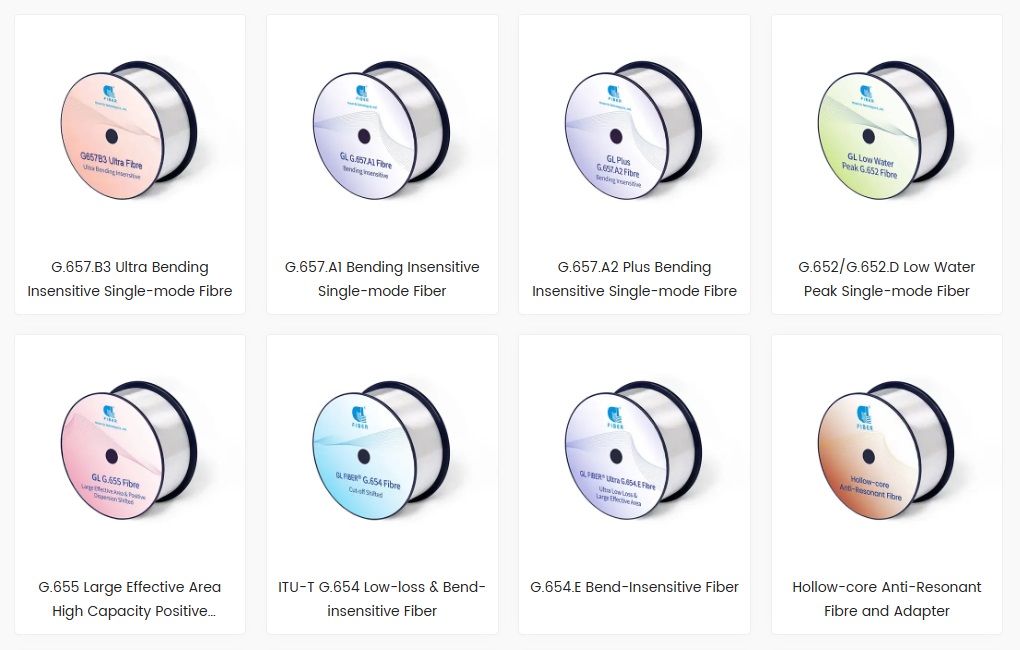
Technical Specifications Comparison
Parameter G657A1 Fiber G657A2 Fiber Significance
1. Minimum Bend Radius 10 mm (static) 7.5 mm (static) G657A2 offers 25% better bend resistance, enabling tighter turns in compact spaces.
2. Macrobending Loss (at 1550 nm, around a 15mm radius) ≤ 0.25 dB ≤ 0.03 dB G657A2 has ~88% lower loss in tight bends, ensuring signal integrity.
3. Full Compliance Fully compatible with G652.D Fully compatible with G652.D Both can be spliced with existing standard single-mode networks with low loss.
Key Differences Explained
1. Bend Performance: The Core Distinction
The primary difference lies in their bending capability. G657A1 fiber is designed for mild bend improvements, while G657A2 fiber is engineered for extreme bend conditions.
G657A1: Ideal for avoiding "bend loss" in typical cabinet installations and residential doorway corners.
G657A2: Essential for applications where fibers are sharply bent, such as:
-
Multi-Dwelling Unit (MDU) wiring closets
-
FTTH drop cables and compact patch panels
-
FPV Drone Fiber Tethers and robotic arms, where space is extremely limited.
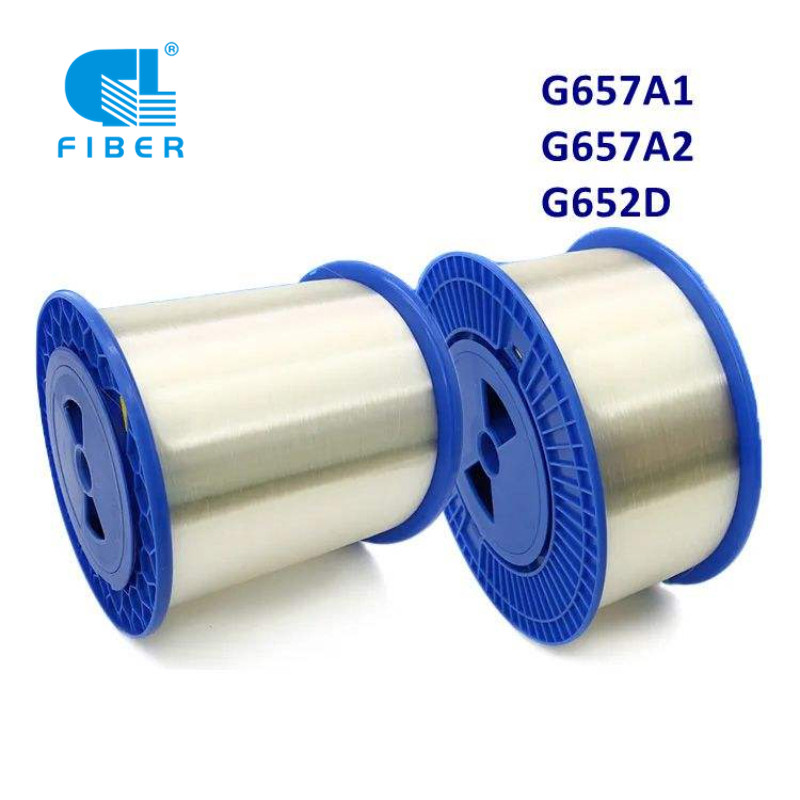
2. Application Scenarios: Where to Use Which?
Choosing the right fiber depends entirely on the installation environment.
G657A1 Applications:
Long-Haul & Metro Networks (where bends are generally controlled)
Standard FTTx Distribution Points
General-purpose patch cords
Cost-sensitive projects where extreme bending is not a concern.
G657A2 Applications:
High-Density FTTH Networks (especially in older buildings with tight conduits)
Compact Optical Splitting Points and micro-cables
Military & Industrial Equipment requiring robust, space-saving cabling.
Data Center inter-racks where cable management creates tight bends.
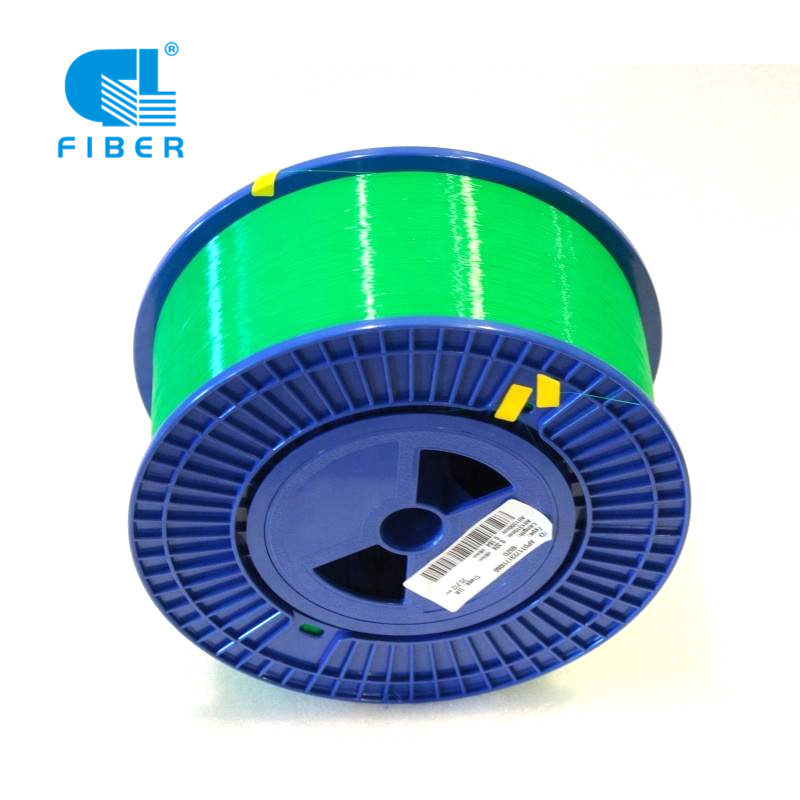
3. Price & Cost Considerations
Generally, G657A1 fiber price is 5-10% lower than G657A2 fiber. The enhanced performance of G657A2, achieved through more advanced core layer design and manufacturing processes, comes at a slight premium. For projects without severe bending requirements, G657A1 offers an excellent balance of performance and cost.
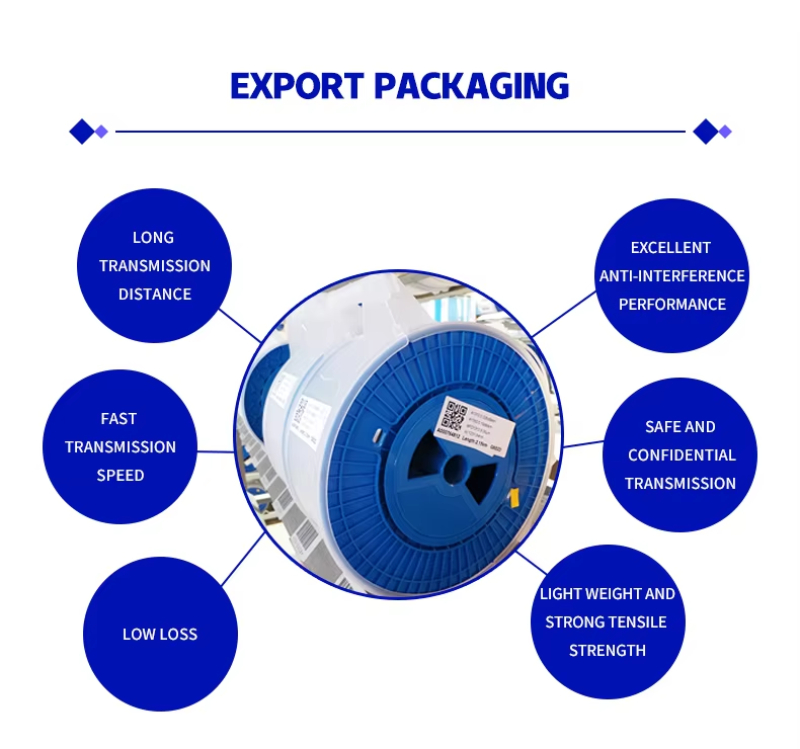
GL-FIBER's G657 Series Solutions
At
GL-FIBER, we supply both G657A1 and G657A2 fibers in various forms to meet diverse project needs:
Bare Optical Fiber: Available in standard 245µm coating or ultra-thin 200µm coating for high-density cables.
Colored Fiber: Using TIA/EIA-598-A standard coloring for easy identification in fiber optic cables.
Custom Lengths: Supplied on robust reels, with popular options like 25.2km and 50.4km per roll.
Our G657A2 fiber is particularly recommended for future-proofing your network against unpredictable installation challenges, ensuring zero signal loss even in the most constrained environments.
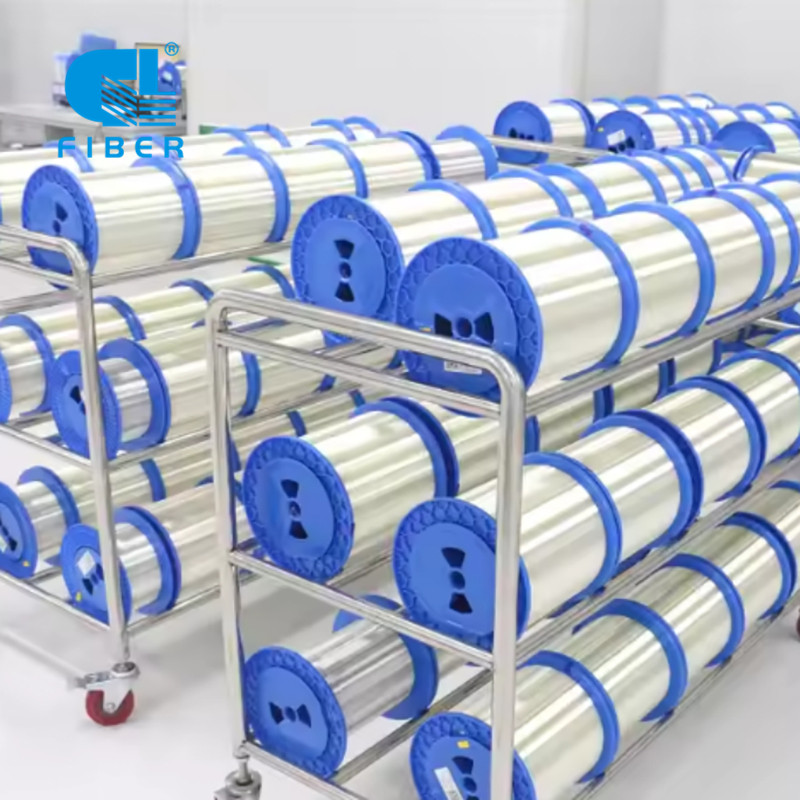
Conclusion: Which One Should You Choose?
1. Scenario Recommended Fiber
2. New FTTH deployment with predictable routing G657A1 (Cost-effective, performance adequate)
3. Retrofitting networks in tight spaces, MDUs, or drone systems G657A2 (Superior performance, essential for reliability)
4. Backbone networks with standard bend radii G652.D or G657A1
5. Projects requiring maximum installation flexibility G657A2 (The premium choice for peace of mind)
Explore Our Single-Mode Fiber Products:
👉 GL-FIBER G657.A1 / G657.A2 Bare & Colored Optical Fiber
As a trusted optical fiber manufacturer, we provide comprehensive technical support to help you select the ideal single mode fiber for your specific application. Contact us today for samples and pricing.





